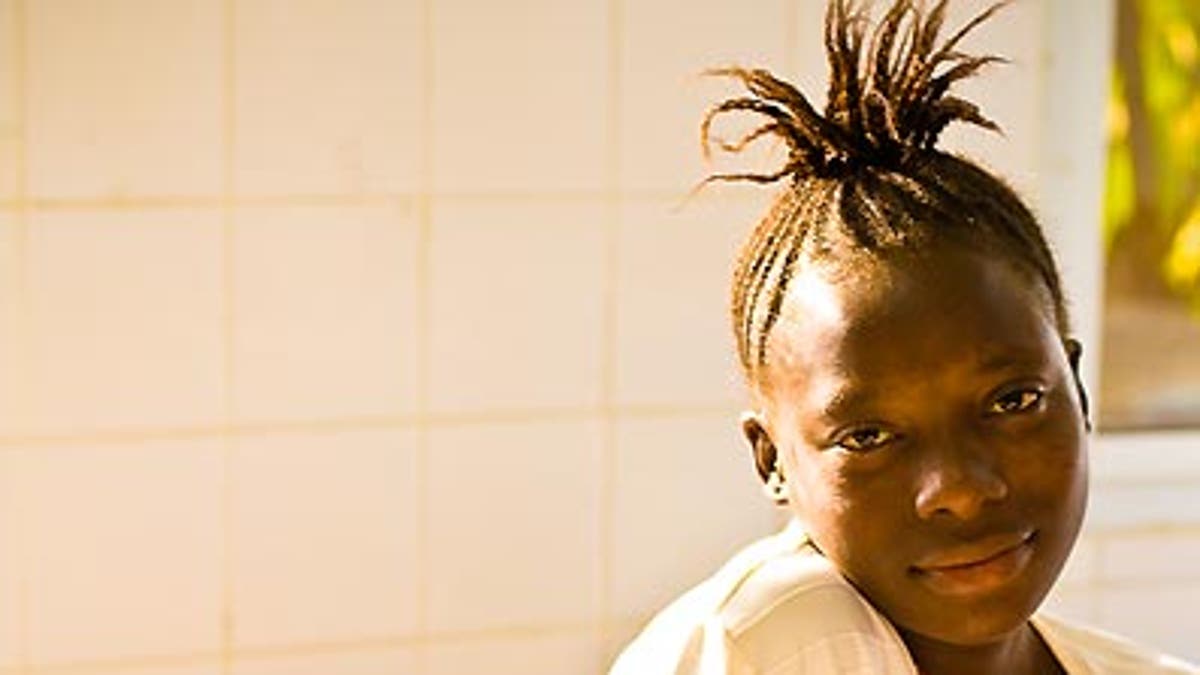
Morgana Wingard, ONE.org
You may have heard that going to Africa can change your life forever. That’s certainly been true for me on the trips I’ve taken there. Recently, I had the opportunity to travel to Freetown, Sierra Leone with the ONE campaign to learn more about maternal and child health, girls’ education and women’s empowerment in Africa. While there I got to visit the Aberdeen West Africa Fistula Center – and I’ve not been able to get it out of my mind since.
I’d never heard of vaginal fistula – I thought perhaps that was because I don’t have children of my own and so I wouldn’t necessarily know all the things that can happen in labor. But the women with me on the trip, many of them mothers, weren’t familiar with it either. For women living in poverty without proper medical care, however, they learn about it far too frequently and often at a very young age.
Vaginal fistula occurs from an obstructed or prolonged labor. Most women with obstructed labor need professional medical assistance before they deliver. But most women in Sierra Leone - and elsewhere – have no access to a doctor. They often give birth alone in their villages (one in eight women in Sierra Leone dies in childbirth). A fistula occurs when the pressure from the baby’s head pushes against the pelvic bone and causes damage to the tissue around the bladder and the rectum. That means that once the labor is over, women suffer from the damaged tissue that leaves an opening between the birth canal and the bladder. They are unable to control the flow of urine, and they often have difficulty walking after delivery; they suffer from horrible skin irritations and the smell is terrible. They often are shunned by their fellow villagers – with no explanation as to why it’s happening, they feel they’ve done something wrong and they live their lives in deep depression and shame.
Thankfully, through the generosity and dedication of the Aberdeen West Africa Fistula Center (AWAFC), many women are getting their lives back. At AWAFC, experienced surgeons are able to help a lot of women by repairing the fistula and then providing physical therapy for those that have difficulty walking or trouble with nerve damage and pain. They also receive a new dress and participate in a ceremony that celebrates their recovery. For these women, that might be the only time in their lives that they ever are celebrated.
AWAFC provides all of this care for free and they also teach them handicraft skills and basic literacy. In fact, the day I was there, a group of women – ranging in age from 14 to 60 – were learning how to count to ten. Yes, that’s right, they did not know how to count to ten. They could not read. They weren’t exactly sure how to use the crayons available on the table, but they were learning about the cycle of contamination from a coloring book. Despite this, they seemed joyous – they were safe, calm, repaired. Their smiles were contagious, their trust in the caretakers heartbreaking.
Perhaps the best part of AWAFC is that they don’t make the women do any work for the time they are there. They don’t have to help cook or clean, they don’t have to fetch water for anyone; rather, they get pampered and sing together, they braid each other’s hair and they share stories – they learn that they didn’t do anything wrong, that they are not alone, and that someone cares about their dignity and wants them to be healed.
Western medicine helped end the problem of fistula in the United States around the turn of the last century – so much so that none of my friends with babies that I’ve talked to have ever heard of this condition. I left Africa with a feeling I’ve had three times now as I’ve left the continent – so, now what do I do? In writing this piece, I hope to spread awareness about the problem and encourage people to remember that we have a responsibility to help others in the world, especially women to women. Vaginal fistula is still widespread. In my limited research I’ve learned that medical personnel in our military are also performing fistula repairs in Afghanistan and elsewhere. Together we can work to give these women and their children – and their men – a renewed lease on life. AWAFC has partnered with the Freedom from Fistula Foundation and Mercy Ships in Sierra Leone – to find out more click here.
Dana Perino is a Fox News contributor and former White House press secretary.
Fox Forum is now on Twitter. Follow us @fxnopinion.
